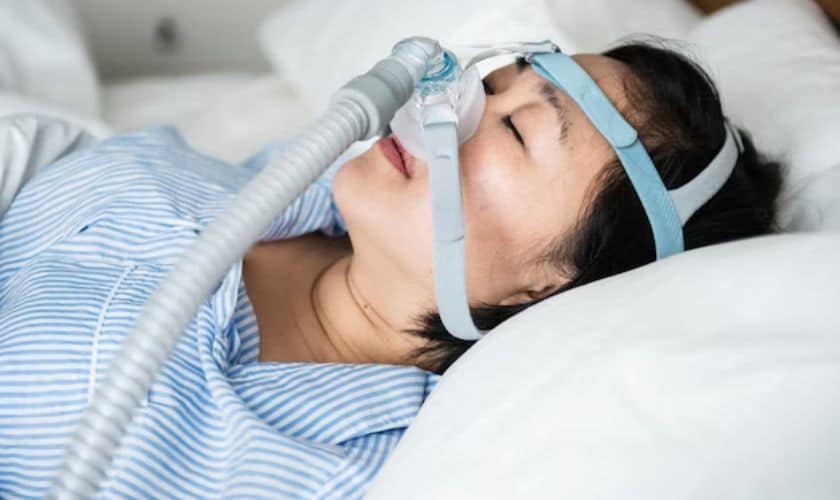
In the realm of sleep disorders, one condition stands out as a silent disruptor of restful nights: sleep apnea. Often misunderstood or underestimated, sleep apnea can have serious consequences on both physical and mental health. This blog post aims to shed light on this condition, its types, causes, symptoms, and potential treatments.
What Is Sleep Apnea?
Sleep apnea is a sleep disorder characterized by interruptions in breathing during sleep. These interruptions, or apneas, can last for several seconds and occur repeatedly throughout the night. There are three main types of sleep apnea:
- Obstructive Sleep Apnea (OSA): This is the most common type of sleep apnea. It occurs when the muscles at the back of the throat relax excessively, causing the airway to become blocked or narrowed.
- Central Sleep Apnea (CSA): In this type, the brain fails to send the proper signals to the muscles that control breathing. Unlike OSA, there is no physical obstruction in the airway.
- Complex/Mixed Sleep Apnea: This type is a combination of both obstructive and central sleep apnea.
Causes Of Sleep Apnea
Several factors can contribute to the development of sleep apnea, including:
- Anatomical Factors: Conditions such as obesity, a thick neck, or narrow airways can increase the risk of OSA.
- Age and Gender: Sleep apnea is more common in older adults and males.
- Family History: If you have a family history of sleep apnea, you might be at a higher risk.
- Lifestyle Habits: Smoking, excessive alcohol consumption, and sedative use can increase the risk of sleep apnea.
- Medical Conditions: Congestive heart failure, high blood pressure, type 2 diabetes, and hormonal disorders can contribute to sleep apnea.
Symptoms Of Sleep Apnea
Sleep apnea symptoms can be subtle and often go unnoticed, making it essential to be vigilant. Common symptoms include:
- Loud Snoring: While snoring can be common, particularly in OSA, excessively loud snoring could indicate sleep apnea.
- Gasping or Choking: Individuals might wake up abruptly due to gasping or choking sensations.
- Excessive Daytime Sleepiness: Feeling excessively tired during the day, even after a full night’s sleep, is a hallmark symptom.
- Morning Headaches: Waking up with a headache is a frequent complaint among sleep apnea sufferers.
- Difficulty Concentrating: Cognitive impairments, including difficulty focusing and memory problems, can result from poor sleep quality.
- Irritability and Mood Changes: Sleep apnea can contribute to mood swings, irritability, and even depression.
The Consequences Of Untreated Sleep Apnea
Left untreated, sleep apnea can lead to a range of health issues, including:
- Cardiovascular Problems: Sleep apnea is linked to high blood pressure, irregular heartbeats, heart disease, and strokes.
- Diabetes: Sleep apnea increases the risk of developing type 2 diabetes.
- Weight Gain: Poor sleep can disrupt hormones related to hunger and appetite, potentially leading to weight gain.
- Daytime Accidents: Excessive daytime sleepiness can increase the risk of accidents, particularly while driving.
- Impaired Cognitive Function: Sleep apnea can affect memory, concentration, and overall cognitive function.
- Reduced Quality of Life: Ongoing fatigue and cognitive impairments can significantly impact a person’s quality of life and relationships.
Treatment Options In Sleep Apnea
Fortunately, sleep apnea is treatable, and various options are available:
- Lifestyle Changes: Losing weight, avoiding alcohol and sedatives, and sleeping on your side can help reduce symptoms.
- Continuous Positive Airway Pressure (CPAP): A CPAP machine delivers a constant flow of air through a mask, helping keep the airway open during sleep.
- Bi-level Positive Airway Pressure (BiPAP): Similar to CPAP, this device adjusts the pressure based on the user’s breathing patterns.
- Positional Therapy: Some individuals experience sleep apnea primarily when sleeping on their back. Sleeping on the side can help alleviate symptoms.
- Oral Appliances: Dentist-prescribed devices can help keep the airway open by repositioning the jaw during sleep.
- Surgery: Surgical options might be considered in cases of severe sleep apnea or when other treatments are ineffective.
Conclusion
Sleep apnea is a serious condition that can have profound effects on a person’s health and well-being. Recognizing the symptoms, understanding the potential risks, and seeking appropriate treatment are crucial steps toward improving the quality of life for those affected by this disorder. If you suspect you or someone you know might have sleep apnea, it’s essential to consult a healthcare professional for proper diagnosis and guidance on managing the condition. Remember, a good night’s sleep is not just a luxury; it’s a fundamental aspect of maintaining overall health and vitality.
